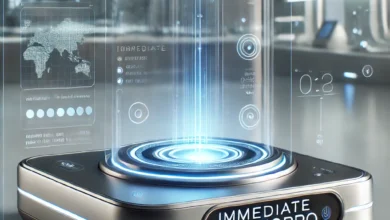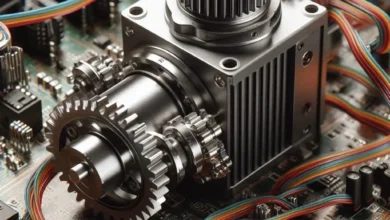Hoi-313: Exploring the Future of Technology in Healthcare

Introduction
In recent years, technology has dramatically transformed various sectors, and healthcare is no exception. Among the cutting-edge innovations, Hoi-313 stands out as a pivotal development poised to revolutionize patient care, streamline processes, and enhance the overall healthcare experience. In this article, we will delve into what Hoi-313 is, its applications, benefits, and potential challenges, while also exploring its impact on the future of healthcare.
What is Hoi-313?
Hoi-313 refers to a sophisticated technological platform designed to integrate advanced data analytics, artificial intelligence (AI), and machine learning in healthcare systems. This platform aims to facilitate better decision-making, improve patient outcomes, and optimize resource allocation within healthcare organizations.
The integration of Hoi-313 into healthcare processes is expected to enhance various functions, such as patient management, diagnostics, treatment personalization, and predictive analytics. By harnessing large datasets and deriving actionable insights, Hoi-313 provides healthcare professionals with the tools they need to make informed decisions swiftly and effectively.
Key Features of Hoi-313
- Data Integration: Hoi_313 enables the seamless integration of diverse data sources, including electronic health records (EHRs), wearables, and imaging systems. This holistic approach ensures that healthcare providers have access to comprehensive patient information.
- AI and Machine Learning: Utilizing advanced algorithms,Hoi_313 analyzes vast amounts of data to identify trends and predict patient outcomes. This capability allows for proactive intervention and tailored treatment plans.
- User-Friendly Interface: The platform is designed with healthcare professionals in mind, featuring an intuitive interface that minimizes training time and enhances user adoption.
- Real-Time Analytics: Hoi_313 offers real-time data analysis, enabling healthcare providers to make timely decisions that can significantly impact patient care.
- Interoperability: This platform supports interoperability among different healthcare systems, allowing for better communication and collaboration among various stakeholders.
The Applications of Hoi-313 in Healthcare
1. Patient Management
One of the most significant applications ofHoi_313 is in patient management. By integrating data from various sources, healthcare providers can create a comprehensive profile for each patient. This profile includes medical history, treatment plans, and real-time health data from wearable devices.
Benefits:
- Improved patient tracking
- Enhanced communication between providers and patients
- More personalized care strategies
2. Diagnostics
Diagnostics is another area where Hoi_313 demonstrates immense potential. By leveraging AI and machine learning, the platform can analyze diagnostic data, helping healthcare professionals identify diseases at earlier stages.
Benefits:
- Increased diagnostic accuracy
- Reduction in false positives and negatives
- Streamlined testing processes
3. Predictive Analytics
Predictive analytics is a critical feature of Hoi_313. By analyzing historical data, the platform can forecast potential health risks for individual patients and populations. This predictive capability allows healthcare providers to intervene early and prevent complications.
Benefits:
- Better resource allocation
- Improved public health outcomes
- Reduced healthcare costs
4. Telemedicine
With the rise of telemedicine,Hoi_313can facilitate virtual consultations, allowing patients to receive care from the comfort of their homes. This feature is particularly beneficial in rural areas or during public health crises, such as the COVID-19 pandemic.
Benefits:
- Increased access to healthcare
- Convenience for patients
- Efficient use of healthcare resources
5. Research and Development
Hoi-313 can play a vital role in healthcare research and development. By aggregating and analyzing data from clinical trials and studies, the platform can help researchers identify trends and outcomes that may not be apparent through traditional methods.
Benefits:
- Accelerated drug development
- Enhanced understanding of diseases
- Improved clinical trial designs
Benefits of Hoi-313
The implementation of Hoi_313 in healthcare systems offers numerous benefits that contribute to improved patient care and operational efficiency.
1. Enhanced Patient Outcomes
By providing healthcare professionals with real-time data and predictive analytics,Hoi_313 enables more accurate diagnoses and tailored treatment plans. This leads to better patient outcomes, as treatments can be adjusted based on ongoing health assessments.
2. Operational Efficiency
Hoi_313 streamlines processes within healthcare organizations, reducing administrative burdens and freeing up resources for direct patient care. This operational efficiency can lead to shorter wait times and improved patient satisfaction.
3. Cost Savings
By preventing complications and facilitating early interventionHoi_313 can contribute to significant cost savings for healthcare organizations. Additionally, efficient resource allocation can reduce waste and optimize budgets.
4. Improved Collaboration
The interoperability features of Hoi_313 foster better communication among healthcare providers, specialists, and patients. This collaborative approach ensures that everyone involved in a patient’s care is on the same page, ultimately leading to more coordinated and effective treatment.
Challenges and Considerations
While Hoi-313 presents exciting opportunities for the future of healthcare, it is not without challenges. Addressing these issues will be crucial for successful implementation and adoption.
1. Data Privacy and Security
As healthcare systems increasingly rely on data-driven technologies, concerns regarding data privacy and security intensify. Protecting sensitive patient information must be a top priority for healthcare organizations utilizing Hoi-313.
2. Integration with Existing Systems
Many healthcare organizations operate on legacy systems that may not be compatible with new technologies like Hoi-313. Ensuring a smooth integration process will require careful planning and investment.
3. Training and Adoption
Healthcare professionals may require training to effectively use Hoi-313. Ensuring user adoption is critical for maximizing the benefits of the platform.
4. Regulatory Compliance
Compliance with healthcare regulations and standards, such as HIPAA in the United States, is essential for the safe implementation of Hoi-313. Organizations must navigate complex regulatory landscapes to ensure that they adhere to legal requirements.
The Future of Hoi-313 in Healthcare
As technology continues to evolve, the future of Hoi-313 looks promising. The platform has the potential to integrate with emerging technologies, such as blockchain and Internet of Things (IoT), to further enhance healthcare delivery.
1. Blockchain Integration
Integrating blockchain technology with Hoi-313 could revolutionize data security and transparency in healthcare. Blockchain can provide a secure and tamper-proof method for storing and sharing patient data, ensuring that only authorized personnel have access.
2. Advancements in AI
As AI continues to advance, Hoi-313 will likely incorporate even more sophisticated algorithms, improving its predictive capabilities and diagnostic accuracy. This progress could lead to even more personalized patient care.
3. Expansion of Telehealth Services
The COVID-19 pandemic has accelerated the adoption of telehealth services. Hoi-313 is poised to play a crucial role in expanding these services, making healthcare more accessible to patients worldwide.
Final Thoughts
In conclusion, Hoi-313 represents a significant leap forward in the integration of technology and healthcare. Its ability to harness data and analytics has the potential to revolutionize patient care, improve outcomes, and optimize resources. However, challenges such as data privacy, system integration, and regulatory compliance must be addressed to ensure its successful implementation.
Questions and Answers
Q1: What is Hoi-313?
A1: Hoi-313 is a technological platform designed to integrate data analytics, artificial intelligence, and machine learning into healthcare systems for improved patient care and operational efficiency.
Q2: How does Hoi-313 enhance patient management?
A2: Hoi-313 integrates diverse data sources to create comprehensive patient profiles, enabling better tracking, communication, and personalized care strategies.
Q3: What are the potential challenges of implementing Hoi-313?
A3: Challenges include data privacy and security concerns, integration with existing systems, training for healthcare professionals, and compliance with regulations.
Q4: How can Hoi-313 contribute to cost savings in healthcare?
A4: By facilitating early intervention and optimizing resource allocation, Hoi-313 can help prevent complications and reduce healthcare costs.
Q5: What does the future hold for Hoi-313 in healthcare?
A5: The future of Hoi-313 includes potential integration with blockchain technology, advancements in AI, and an expansion of telehealth services.
For more information on Hoi_313 and its applications, visit reputable sources such as:




